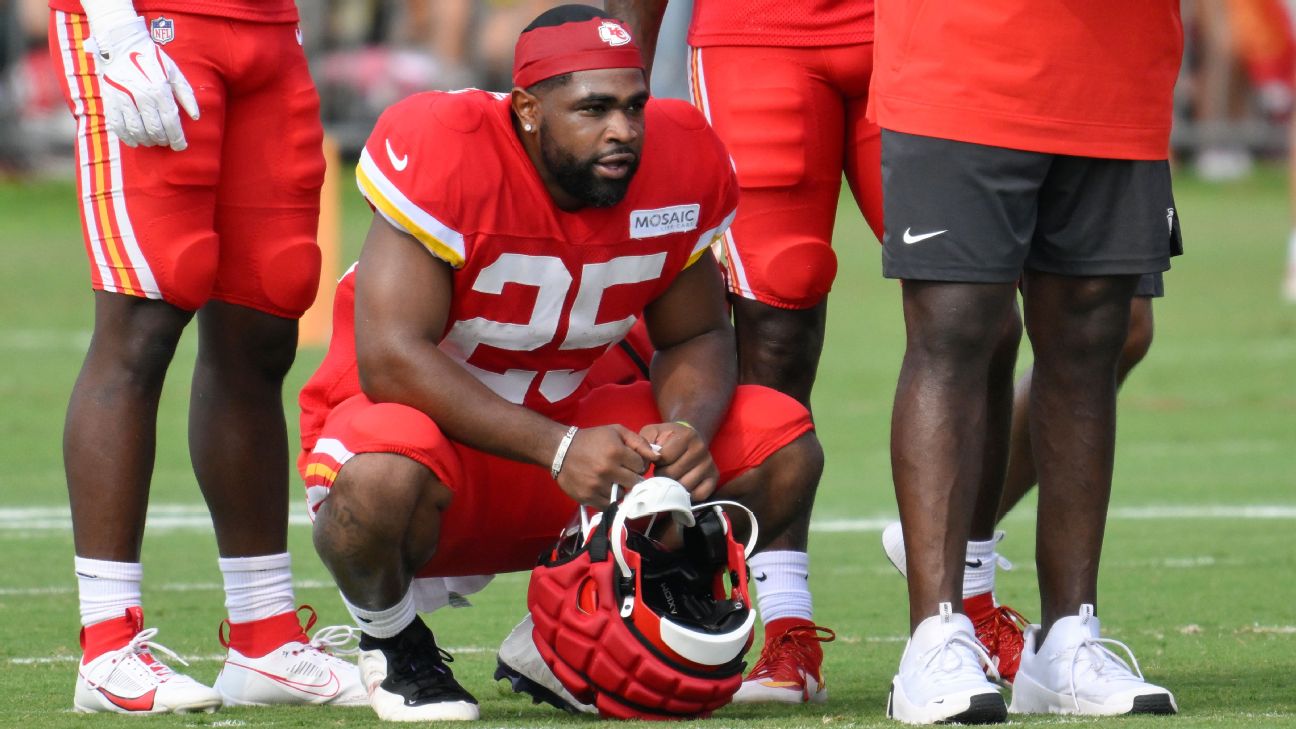
Posted on Aug 01


Posted on Aug 01

u/alex •

u/alex •
Clyde Edwards-Helaire, the Kansas City Chiefs running back, opens up about his battle with post-traumatic stress disorder (PTSD) and the impact it has on his daily life.
Why it matters: Edwards-Helaire's disclosure sheds light on the importance of mental health awareness in professional sports and society as a whole.
What's new: The NFL player reveals that he has been dealing with PTSD, which has resulted in missed practice time and hospital admissions due to severe symptoms.
Yes, but: While Edwards-Helaire acknowledges that his self-defense situation in 2018 contributed to his PTSD, he also mentions the loss of close friends to gun violence as additional factors.
By the numbers: Studies show that approximately 8% of Americans will experience PTSD at some point in their lives, with athletes being particularly susceptible to mental health challenges.
What to watch: Edwards-Helaire's openness about his struggles with PTSD may inspire others, both within and outside the world of sports, to seek help and start conversations about mental health.
What's next: It is crucial for teams and leagues to prioritize mental health support systems and resources for athletes. This includes providing access to counseling services, raising awareness, and implementing policies that reduce stigma surrounding mental health issues.
The bottom line: Clyde Edwards-Helaire's decision to share his personal battle with PTSD highlights the need for compassion, understanding, and support when it comes to mental health in professional sports. By speaking out, he encourages others to seek help and reinforces the importance of addressing mental health concerns openly and honestly.
Clyde Edwards-Helaire, the Kansas City Chiefs running back, opens up about his battle with post-traumatic stress disorder (PTSD) and the impact it has on his daily life.
Why it matters: Edwards-Helaire's disclosure sheds light on the importance of mental health awareness in professional sports and society as a whole.
What's new: The NFL player reveals that he has been dealing with PTSD, which has resulted in missed practice time and hospital admissions due to severe symptoms.
Yes, but: While Edwards-Helaire acknowledges that his self-defense situation in 2018 contributed to his PTSD, he also mentions the loss of close friends to gun violence as additional factors.
By the numbers: Studies show that approximately 8% of Americans will experience PTSD at some point in their lives, with athletes being particularly susceptible to mental health challenges.
What to watch: Edwards-Helaire's openness about his struggles with PTSD may inspire others, both within and outside the world of sports, to seek help and start conversations about mental health.
What's next: It is crucial for teams and leagues to prioritize mental health support systems and resources for athletes. This includes providing access to counseling services, raising awareness, and implementing policies that reduce stigma surrounding mental health issues.
The bottom line: Clyde Edwards-Helaire's decision to share his personal battle with PTSD highlights the need for compassion, understanding, and support when it comes to mental health in professional sports. By speaking out, he encourages others to seek help and reinforces the importance of addressing mental health concerns openly and honestly.